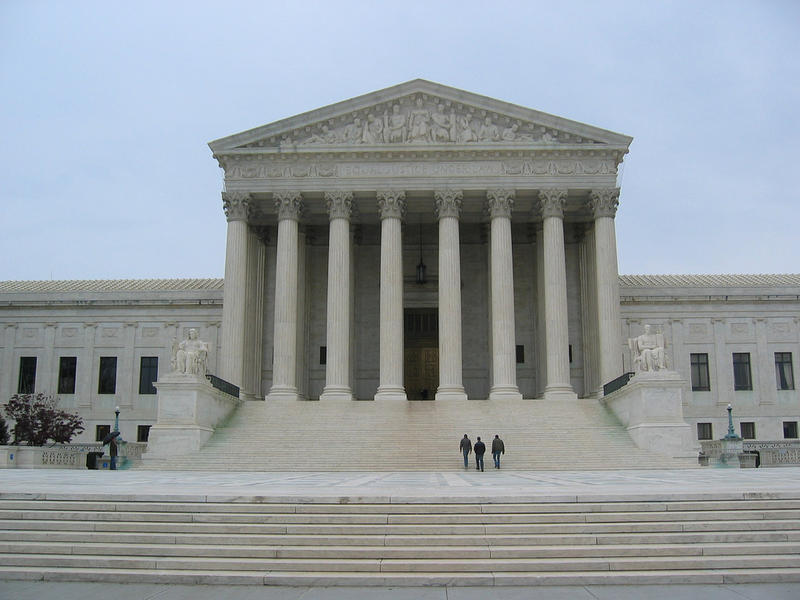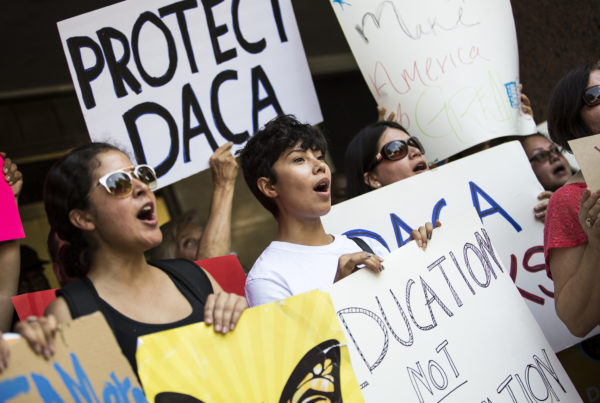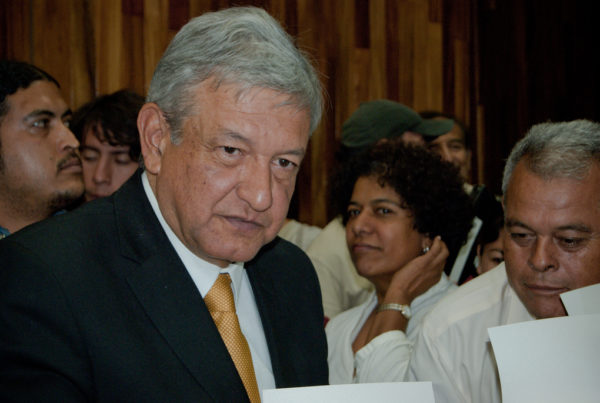For several years, U.S. courts have been trying to answer a question: Is a Mexican citizen killed on Mexican soil by a U.S. border agent protected by the U.S. Constitution?
On Tuesday, the U.S. Court of Appeals for the 9th Circuit ruled that José Antonio Elena Rodríguez, a Mexican teenager who was shot and killed near the border in his hometown of Nogales, Mexico by a U.S. border patrol agent, was protected under the U.S. Constitution.
However, that ruling runs contrary to a similar case, where a teenager named Sergio Hernandez, was shot and killed by a border patrol agent near Juarez, Mexico in 2010. That case made it to the Supreme Court, but was sent back to a lower court. Just a few months ago, in March, the U.S. Court of Appeals for the 5th Circuit ruled the teenager in that case,, wasn’t protected under the Constitution.
This created what is called a circuit split over courts’ reading of the Fourth Amendment, which protects against unreasonable searches and seizures.
“We’re also only talking about at the border,” says Stephen Vladeck, a professor of law at the University of Texas at Austin. He also represents the Hernandez family, whose son was killed in Juarez.
“There’s no general claim that a Mexican national, for example,” he says, “in the capital Mexico City, is protected by U.S. constitution. The claim is that when, as in both of these cases, a U.S. Customs and Border Protection agent is standing on U.S. soil and fires his gun across the border, and kills a Mexican national literally feet into Mexico, does the Fourth Amendment and the Fifth Amendment apply in that context? The 9th Circuit on Tuesday said yes, the 5th Circuit in the Hernandez case has said no. You know, I think it’s a good bet the Supreme Court is going to have to resolve that one way or the other.”
In these cases, the judges’ rulings concern civil lawsuits, brought on by family members of the slain teenager’s family.
“In the 9th Circuit case, the government has actually tried to prosecute the border agent for murder,” Vladeck says. “The jury actually hung and now they’re going to try to recharge him for manslaughter. In the 5th Circuit case there was no criminal indictment, and so all that’s left in these cases, where the allegation is basically that these Customs and Border Protections agents have committed cold-blooded murders, is civil lawsuits by the victims and by the victims’ families, and that’s what’s happened in both these cases. It raises the separate question of not only whether the Constitution applies to these cases, but whether the courts are in a position to provide a damages remedy given that Congress, perhaps surprisingly, has never authorized any of us to bring a damages suit against a federal officer who violates our constitutional rights.”
The 5th Circuit is known for ruling more conservatively than the 9th Circuit, but Vladeck was still surprised by the circuit split.
“I guess I was a little bit surprised that these two appeals courts could look at the same instructions from the Supreme Court in the Hernandez case in 2017 and another case called Ziglar v. Abbasi and reach such diametrically opposite conclusions,” Vladeck says. “But you know, Joy, for as much as folks tend to criticize the 9th Circuit for being very liberal, the decision on Tuesday was written by a pretty conservative Republican-appointed judge, Andrew Kleinfeld from Alaska, so, you know, I think it’s a surprising split only because the Supreme Court, I think, gave the same instructions to both.
“But I think it also underscores that what’s really missing here is clarity from the Supreme Court about when the Constitution applies in this circumstance, and assuming it does apply, when victims can sue the offending officers for damages.”
Vladeck says it’s very likely that the next step will be clarification from the Supreme Court.
“The Supreme Court tends not to like to leave these so-called circuit splits intact,” he says. “We already have a petition pending in the Hernandez case, to take that case back to the Supreme Case. Whether in Hernandez case, whether in the Rodriguez case, which was decided on Tuesday, I think by this time next year odds are pretty good the Supreme Court will have weighed back in.”
Written by Rachel Taube.
















